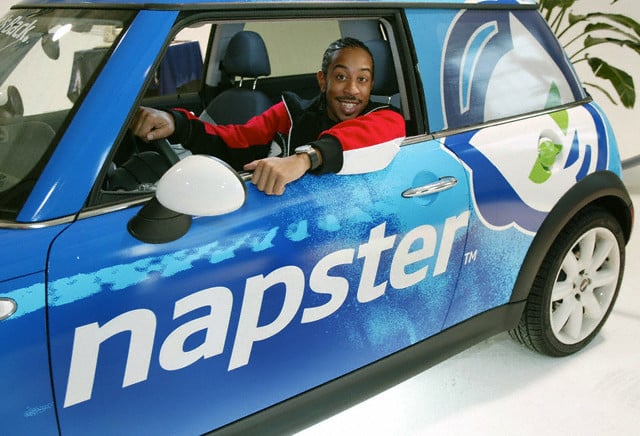
Chasing the post-download digital music opportunity, veteran services are seeking scale to fight dominant newcomers, whilst strangers from outside the space are launching their own new services with mixed success.
The Incumbent
On the eve of the big Midem music conference in Cannes, Rhapsody today says it is moving in to Europe by acquiring Napster International, the division service the UK and Germany. That is the latest piece of the jigsaw after the company in October announced Napster’s U.S. acquisition from Best Buy.
The company pioneered the unlimited music space in 2001 but, despite turning around customer decline following its spin-out from RealNetworks (NSDQ: RNWK) and Viacom (NYSE: VIA), its subscriber base has been overtaken four-year-old Spotify.
Last disclosed user counts were 750,000 versus 2.5 million. Napster brings an estimated 350,000 extra customers to Rhapsody. The combined figure of over a million, which Rhapsody itself disclosed on Thursday, is still shy of Spotify, but moving in to the big new territory of Europe – just as, vice versa, Spotify has embraced Rhapsody’s U.S. patch – could grow Rhapsody’s customer base further.
In Europe for the first time, Rhapsody will migrate Napster subscribers to its own platform in March, introducing its own web player, but the Napster brand and employees will remain in place in the UK and Germany.
What’s Happening
Rdio, Mog, Spotify, Rhapsody, We7 and all manner of others are jostling for early dominance in a promising new paid content sector that has been ignited by mobile and by music labels seeking new growth after the slowdown of track sales.
Global music subscribers grew by 65 percent to 13.4 million in 2011, according to labels’ IFPI umbrella. But that is peanuts compared to what the sector could become as consumers switch from ownership to access. The opportunity is to create an iTunes beater.
Labels’ support has opened a window of opportunity for new entrants to race to own this new area. Here are the latest…
The Massive Failure: News Corp
Beyond Oblivion, a fatally-named, New York-based unlimited music service invested in by News Corp and Allen & Co’s Stanley Shuman, has filed for bankruptcy, owing between $100 million and $500 million despite having not yet launched.
The company owes Sony (NYSE: SNE) Music Entertainment and Warner Music Group (NYSE: WMG) $50 million each, Reuters reports. News Corp.’s digital chief Jon Miller is a board director.
Reasons for the collapse are not clear. News Corp had invested just $9.2 million for a 23 percent stake in April 2010.
The Fringe Player: Aspiro
Norway-based Aspiro, which provides its music service WiMP through ISP and white label partners mostly in Spotify’s backyard of Scandinavia, on Thursday announced its latest ISP partner, the Netherlands’ Ziggo. The deal guarantees Aspiro at least nine million Swedish krona ($1.3 million) over two years.
Aspiro is now active in Sweden, Norway, Denmark, Portugal and the Netherlands but wants to expand in to new territories and is in the process of rolling out to Ireland and Germany.
The Radio Player: Pure Music
DAB and internet radio maker Pure on Thursday unveiled its own unlimited-access cloud music service, Pure Music, for £4.99 a month in the UK. Naturally, the service is available on some of Pure’s own radios, but also on web and on smartphones, where music subscription services are getting the majority of their paid custom.
Pure has the device capability to make an impact in music on radio, but customers may already be more excited about unlimited music on new-wave “radio” devices like Sonos and through AirPlay than conventional “radio”, even internet radio, per se.